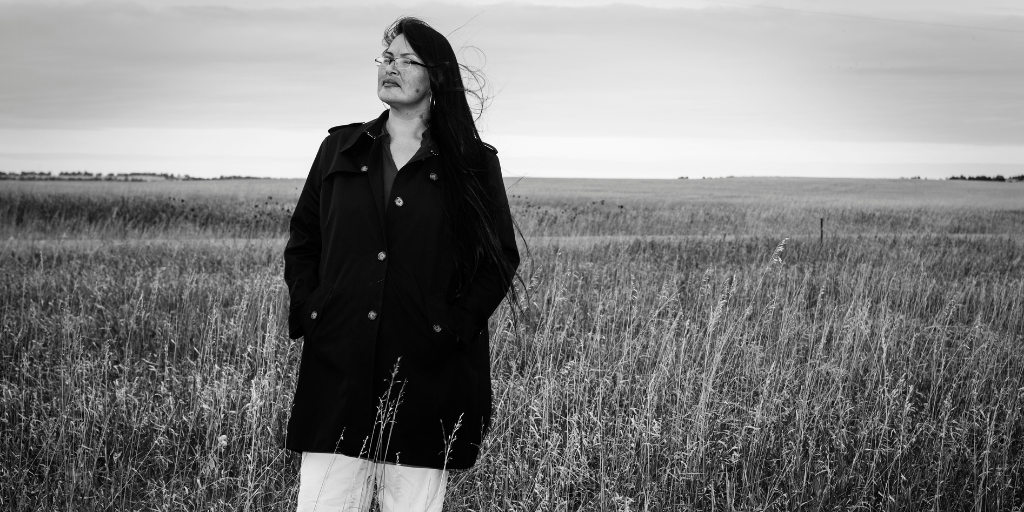Strengthening Food Security and Sovereignty in Indian Country — Today, and Every Day

Today marks Indigenous Peoples’ Day — a day to celebrate and honor Native Americans and their incredible contributions to our country. At MAZON, we are proud of our longtime allyship with partners in Indian Country. Organizations like the Indigenous Food and Agriculture Initiative, Native Food and Nutrition Resource Alliance, and the Native Farm Bill Coalition — act from a place of incredible power and vision. We are inspired by their leadership, and we are more committed than ever to strengthen Tribes’ sovereignty so they can ensure the health, safety, and wellness of their people.
While we take pride in our work to strengthen food security and sovereignty in Indian Country, we are saddened that it has become even more pressing during COVID-19. The historic trauma of previous pandemics, such as smallpox and measles, continues with Tribal Nations again being left behind. With casinos and other businesses closing, and the subsequent lack of tax revenues, Tribal communities face disproportionately higher rates of hunger and poverty. Despite exciting developments in Native agriculture and food economies, Tribes largely remain at the end of the line in terms of the nation’s food supply chain, and support for food distribution programs.
Food scarcity and affordability were everyday challenges long before the pandemic. In Indian Country, it is often hard to come by fresh, nutritious, and culturally appropriate food, and costs are significantly higher than elsewhere. Nearly all of Indian Country is considered a “food desert,” but this term itself is misleading, because a desert is a natural phenomenon. Lack of access to healthy, affordable, and traditional food in Indian Country is not natural; it is a byproduct of hundreds of years of neglect, structural racism, chronic federal underfunding, overlooked calls for greater Tribal control over their food and agriculture systems, and the ongoing effects of colonialism.
These food access problems are not new, and they have led to devastating health disparities among Tribal Nations — including high rates of diabetes and obesity — that leave Tribal communities vulnerable to the worst health impacts of COVID-19.
And so, it comes as no surprise that Tribes have been hit incredibly hard by the virus itself. According to the CDC, the rate of infection among Native Americans and Alaska Natives is 3.5 times higher than non-Hispanic whites. This summer, news broke that Navajo Nation had one of the worst infection rates of any state in the country, with even higher rates than Wuhan at the height of the outbreak in China.
Unfortunately, the U.S. government’s response to these chronic and urgent needs is completely inadequate. Even today, as Tribal Nations struggle to protect their citizens from the health and economic impacts of the pandemic, Tribes are still waiting to receive funds that were promised by the federal government. Billions of federal dollars designated for Tribes are tied up in red tape, roadblocks, and bureaucratic hurdles.
Clearly, this crisis shows how vulnerable Tribal communities are to public health emergencies, food insecurity, and economic downturns. But it also underscores the importance of the growing Tribal food sovereignty movement, which aims to reclaim food systems, protect food traditions, and enable Tribes to feed themselves in good times and bad. While COVID-19 has exposed the gaping holes in our nation’s safety net, it has also proven the incredible resilience of Tribal Nations, particularly in the face of adversity and ongoing injustices.
We at MAZON continue to urge the federal government to engage and support Tribes in their efforts to strengthen food security, bolster and expand public health infrastructure, and build vibrant Tribal agricultural economies. We continue to raise our voices to urge support for the Food Distribution Program on Indian Reservations (FDPIR), which is the only federal food program that targets Native Americans living on or near reservations. We continue to demand that Congress pass another COVID-19 relief bill that boosts SNAP for all who need it, allows Tribes to directly access the Emergency Food Assistance Program (TEFAP), and temporarily allows FDPIR recipients to access SNAP.
So today — on Indigenous Peoples Day — we hope you will join MAZON in recognizing that Tribes face unique challenges due to immense inequities and ongoing disparities. The best way to honor indigenous people is to ensure their wellness and sovereignty.
